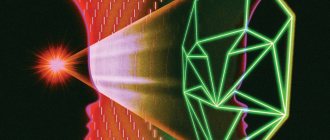In everyday life, words are often used that can simultaneously be considered a process and its result - self-improvement, self-knowledge. Development is the same example of dualism. On the one hand, it determines the mechanism for achieving a specific task. On the other hand, development is the ultimate goal, an opportunity to become better. This process takes place in living and inanimate nature. People, businesses, and the whole society are subject to its laws. What is development? What are its signs? What mechanisms and stages? The article contains answers to all these questions.
What is development?
Development is a transition to a qualitatively new level. It is inherent in any form of existence of matter. Moreover, these forms themselves are the result of the evolution of the Universe. At the intersection of science and philosophy, it is customary to talk about the following stages of self-organization of matter:
- Mechanical – space;
- Physical – fields and atoms;
- Chemical – molecules;
- Biological – living organisms;
- Socio-social – human society.
Development takes place at each stage. The solar system is developing, chemical compounds are becoming more complex, living beings are evolving, humans are improving, and the historical progress of society is being observed.
The main mechanism is the accumulation of quantitative changes that lead to a qualitative leap. The famous German philosopher Georg Wilhelm Friedrich Hegel also spoke about this.
For example, the transition of water to steam. When it reaches the boiling point, more active molecules gradually appear and evaporate from the liquid. In living nature, evolutionary changes can be considered an example of development. They arise in response to a certain number of accumulated beneficial mutations. Thus, a bird hatched for the first time from a dinosaur egg.
Parallels can be drawn with human life . Gradually, he acquires skills, knowledge and experience that allow him to move to a qualitatively new level. So, a novice boxer, if he shows diligence, eventually becomes the champion of the region, country, and subsequently, possibly the world. But unlike previous forms of existence of matter, man has reason and will. Therefore, human development is a more complex process, which is complemented by comprehension and the possibility of choice.
Take a personality type test
The fourth level of development is the Spiritual level.
Spiritual level of development - this level leads to the identification of a person with his true “I” - soul . At this level, the main priority for a person is to interact with spiritual energy, through immersion in one’s true nature, knowledge of spiritual knowledge or worship of the Supreme Lord, God, the Absolute Truth. In this, a person reveals not only his true nature, but also absolute and pure happiness.
Realizing himself as an eternal soul , conditioned by this body, but at the same time not connected with it, just as a person in a uniform is forced to be conditioned by his presence in it, but does not consider himself to be one. A person is then free from material or worldly desires, completely immersed in the contemplation of the spiritual nature within himself.
This leads him to freedom from attachments, desires, fears and blissful indifference to the world, which manifests itself in the reluctance of honors, pleasures, wealth, tolerance for other people, their shortcomings and actions. All this is dictated by the awareness of oneself as an eternal soul, which cannot be damaged, changed or destroyed. This perception of the world frees a person from a lot of suffering and gives a person the opportunity to be completely satisfied in his spiritual inner happiness.
Blissful detachment from the world does not necessarily manifest itself in complete external renunciation. Rather, it is reflected in a person’s perception of the world around him and the people around him. He begins to realize their situation, to have compassion, perceiving them not from the position of a false ego, but as if from his own. After all, no one was born a saint.
A person at this level reaches the peak of his internal development - positive, good, virtuous qualities predominate in him, he is happy and does not experience discomfort in life and in communicating with other people. Without fear of death on the one hand and without becoming attached to material things and people on the other, such a person is constantly free, although he is busy with various activities.
Various manifestations of negative qualities are not reflected in such people, which, on the one hand, makes them attractive to others, and on the other, causes misunderstanding, even antipathy, on the part of less conscious people. But if a wise man bows to knowledge and a fool scoffs at it, then this is confirmation of its truth. It is impossible to find knowledge that is sufficiently valuable, applicable and generally accepted. Mostly because people are different and their perception and level of development limits their ability to see the truth.
A spiritual person is a person who has comprehended spiritual knowledge, knowledge about the soul, advanced on the spiritual path and blessed with spiritual energy, having revealed it in himself. Spiritual nature has three qualities - eternity or immutability, knowledge or a set of qualities that are considered the most favorable and bliss - a state of complete and unconditional happiness. These three signs are signs of progress on the spiritual path and serve as a reward to the person himself when they are revealed in his heart.
Stages of human development.
There are biological and social aspects. In the first case, we are talking about the development of a person as a living organism with the passage of all stages from conception, birth, life and death. The second case involves the socialization of the individual. In addition, a person is inclined to engage in self-development, choosing the direction that is truly interesting to him. Let's consider all cases in detail.
Psychophysiological development of a person.
In the process of his development, a person goes through a number of natural stages (physiological and psychological):
- The intrauterine period – the appearance of all systems and organs;
- Infancy – from birth to 1 year of age;
- Early childhood – from one to three years;
- Preschool period - on average up to 7 years;
- Junior school age – from 7 to 12 years;
- Adolescence – up to 15 years;
- Youth – up to 19 years old;
- Youth – covers the period from 19 to 35 years;
- Adulthood (maturity) – 35-60 years;
- Old age – from 60 years.
If the intrauterine development of a person is the sphere of embryology, then further life is carefully studied by psychologists and physiologists. So, psychologists made a great contribution to understanding the formation of personality in various periods of human development: Pavel Petrovich Blonsky, Lev Semenovich Vygotsky, Erik Homburger Erikson, Danil Borisovich Elkonin, Alexey Nikolaevich Leontiev.
According to the ideas of psychoanalysis, formed by Sigmund Freud, in his formation a person depends on the zones that cause the greatest pleasure in a particular period of life. According to these views, there are the following stages of human development:
- Oral – from birth to one and a half years, when the mouth is the main way to satisfy organic needs;
- Anal – the period from 1.5 to 3.5 years, when the child learns to control the process of bowel movements;
- Phallic – age from 3.5 to 6 years, when gender identification occurs;
- Latent – a period from 6 to 12 years, manifested in a decrease in sexual activity;
- Genital – a transitional age, which is expressed in the formation of mature sexual relationships.
Since man is a biosocial phenomenon, developmental psychology cannot be based only on the physiological characteristics of the individual. The formation of his personality also plays an important role in the formation of a person.
Stages of personality development.
Improving the spiritual sphere of a person, his desire for self-knowledge and choosing his calling, can be compared with Abraham Maslow’s Pyramid of Needs. According to this approach, the development of a person as an individual moves in the following direction:
- Physiological needs - food, drink, sex;
- Security need - the desire to be protected;
- The need for love and friendship is socialization;
- The desire for respect - recognition, approval, veneration;
- Gaining knowledge - the desire to know and understand more;
- Aesthetic needs - a feeling of beauty and harmony;
- Self-actualization is the highest form of self-development.
In the process of his development, a person strives for spiritual perfection, but this becomes possible only if lower needs are satisfied. A homeless person is unlikely to appreciate a gift of a ticket to the opera. A person running away from an angry crowd has no time to listen to another smart audiobook. A teenager would rather choose a walk with an older classmate than professional growth and self-development. Each period of development implies its own strategy of behavior and ultimate goal.
Considering the dual nature of man and his ability to establish communication with other representatives of his species, it is appropriate to talk about the development of a group of people united by common goals. First of all, these are labor collectives of various private and public companies. They are also improving. We will consider the stages of development of the organization in the next section.
Take a character test
Development of the human team.
Any team, one way or another, goes through the following stages (according to the theory of Bruce Wayne Tuckman):
- Checking (forming) – “probing” each other;
- Conflict – the emergence of contradictions, their aggravation;
- Cohesion (normalization) – reconciliation based on conflict resolution;
- Differentiation (execution) – formation of a functional role structure.
These principles are universal in work teams and voluntary associations of people of interest. If we talk about the development of an organization related to solving a specific business problem, we can distinguish the following periodization:
- Task orientation;
- Emotional understanding of the task, search for inconsistencies;
- Information exchange, analysis of ideas and proposals;
- Solving a problem by making constructive decisions.
Considering that any company is like a living organism, it is customary to talk about the life cycle of an organization:
- Formation – development of a strategy and development plan;
- Growth – increasing turnover, increasing indicators;
- Maturity – stabilization of the structure;
- Decline – accumulation of organizational problems, stagnation.
At the end of its life cycle, an organization can take several paths. Either it undergoes a rebranding, forming new tasks and goals, or it closes, giving way to other companies at earlier stages of development.
Not all management systems try to combine the development of the organization and the individual improvement of its employees. Indicative in this regard is the Japanese management philosophy of Kaizen, which promotes the continuous development of the company through the cumulative progress of all its elements. First of all – each of the employees. In general, the topic of development and self-development is very relevant in a dynamically developing world.
How to start developing spiritually
A person has a desire to develop spiritually in three cases:
- conscious desire to work on oneself;
- working on yourself after emergency situations (illness, accident, divorce, loss of a loved one);
- a manifested miracle (usually through personal example, following someone as your spiritual guide).
The most environmentally friendly way is the first one. When the desire comes from the intention to become better, to demonstrate one’s spiritual qualities to the fullest, it is easier for a person to move along the roads of life. The right people are found, useful books are found, new opportunities open up.
In the second case, a person begins to worry about the question: “Why am I suffering? Why do I need this experience? He returns to previous experience and strives to qualitatively change his life, first of all, his relationships with himself and his close circle.
The third case is less common, but it does happen. Just as the apostles followed Jesus Christ because they trusted him and saw a miracle manifested in him, so each person can see a miracle in another. See what will inspire him to become better, open his heart and accept all the divine gifts that the Creator has generously bestowed upon him.
Each of us has every opportunity to become a spiritually developed person.
Personal development and self-development.
When a person is born, he is like a blank sheet of paper. Of course, in the initial stages of life, the intervention of adults is necessary, who initiate the development of a person’s personality. But this help is fraught with pitfalls. The fact is that sometimes calling is completely different from the path that society imposes.
Family, school, university do not always provide the knowledge and skills that a particular person really needs. What to do in this case? Growing up, a person feels these inconsistencies and tries to compensate for the missing experience through self-education and self-education.
For example, a hereditary jeweler, realizing that precious metals or stones are not his vocation, is looking for more suitable ways of development. He re-reads dozens of books, watches hundreds of themed programs and finally understands that he wants to become an artist. Since his family does not help him in this, he engages in self-development, gradually becoming a painter.










